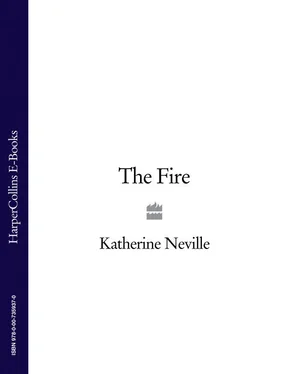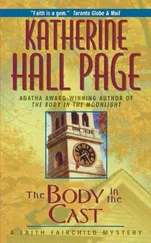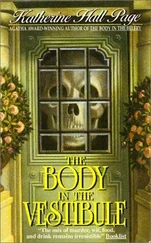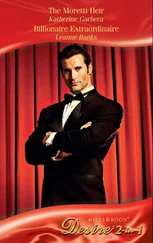‘Do you know that lady, Papa?’ Xie asked in a whisper so no one could hear.
Solarin dropped to one knee in the snow beside his daughter and tossed his arms about her, burying his face in her muffler. He felt like weeping.
‘For a moment she looked familiar,’ he said to Xie. ‘But I’m sure I do not.’
He squeezed her harder, as if he could wring her out. In all these years, he had never lied to his daughter. Not until now. But what could he tell her?
‘And what does her card say?’ Xie whispered in his ear. ‘The one with the flying bird?’
‘ Apahsnah – it means “danger”’ Solarin told her, trying to pull himself together.
For God’s sake, what was he thinking? This was a fantasy brought on by a week of stress and bad food and miserable cold. He must be strong. He got to his feet and pressed his daughter’s shoulder between his fingers. ‘But perhaps the only danger here is of you forgetting your practice!’ He gave a smile that Xie did not return.
‘What do the other words say?’ she asked.
‘ Byrihgyees pahzhar, ’ he told her. ‘I think it’s just a reference to the firebird or phoenix in this picture here.’ Solarin paused and looked at her. ‘In English, it means, “Beware the fire.”’ He took a deep breath. ‘Now let’s go inside,’ he said, ‘so you can beat the pants off of that Ukrainian patzer !’
From the moment they entered the Vestry of Sergiev Lavra, Solarin knew something was wrong. The walls were cold and damp, depressing like everything else in the so-called Women’s Summer. He thought of the woman’s message. What did it mean?
Taras Petrossian, the dashing nouveau capitalist tournament organizer, in his expensive Italian suit, was handing a large wad of rubles as a pourboire to a skinny monk with a big ring of keys, who’d unlocked the building for the game. Petrossian, it was said, had made his fortune through under-the-table dealings in the several designer restaurants and nightclubs he owned. There was a colloquial word for it in Russian: blat. Connections.
The armed thugs had already penetrated the inner sanctum – they lurked everywhere in the Vestry, leaning conspicuously against the walls, and not just for warmth. Among other things, this low, squat, unobtrusive building served as the monastery’s treasury.
The glut of the medieval church’s gold and jewels were displayed on pedestals in brightly lit glass cases scattered around the floor. It would be hard to concentrate on chess, thought Solarin, with all this blinding glitter – but there was the young Vartan Azov, already seated beside the chessboard, his large dark eyes focused upon them as they entered the room. Xie left her father and went to greet him. Solarin thought – not for the first time – that he would like to watch Xie wipe the board with the arrogant brat.
He had to wipe that message from his mind. What did the woman mean? Danger? Beware the fire? And that face he could never forget, a face from his darkest dreams, his nightmares, his worst horrors –
And then he saw it. In a glass display case far across the room.
Solarin walked as in a dream across the wide-open floor of the Vestry and he stood looking down at the large glass case.
Within was a sculpture he had also thought he would never see again – something as impossible and as dangerous as the face of that woman he’d glimpsed outside. Something that had been buried, something long ago and far away. Yet here it was before him.
It was a heavy gold carving, caked with jewels. It portrayed a figure dressed in long robes and seated in a small pavilion with the draperies drawn back.
‘The Black Queen,’ whispered a voice just beside him. Solarin looked down to see the dark eyes and tousled hair of Vartan Azov.
‘Discovered only recently,’ the boy went on, ‘in the cellar of the Hermitage in Petersburg – along with Schliemann’s treasures of Troy. They say this once belonged to Charlemagne and was hidden – perhaps since the French Revolution. It may have been in possession of Catherine the Great of Russia. This is the first time it has been shown in public since it was found.’ Vartan paused. ‘It was brought here for this game.’
Solarin was blinded by terror. He could hear nothing further. They had to depart at once. For this piece was theirs – the most important piece of all those they had captured and buried. How could it be surfacing here in Russia, when they had buried it twenty years ago, thousands of miles away?
Danger, beware the fire? Solarin had to get out of this place and get some air, he had to escape with Xie right now, the game be damned. Cat had been right all along, but he couldn’t see the whole picture yet – he couldn’t see the board for the pieces.
Solarin nodded politely to Vartan Azov and crossed the room in a few swift strides. He took Xie by the hand and headed for the door.
‘Papa,’ said Xie in confusion, ‘where are we going?’
‘To see that lady,’ he said cryptically, ‘the lady who gave you the card.’
‘But what about the game?’
She would forfeit if she wasn’t there when they started the clocks. She would lose everything they had worked so long and hard for. But he had to know. He stepped outside, holding her hand.
From the top of the Vestry steps, he saw her across the park. The woman was standing at the gates, looking across the space at Solarin with love and understanding. He had been right about her. But then her look changed to one of fear, as she glanced up toward the parapet.
It was only another instant before Solarin followed her gaze and saw the guard, perched on the parapet high above, the gun in his hand. Without thinking, Solarin shoved Xie behind him for protection and glanced back at the woman.
‘Mother,’ he said.
And the next thing he saw was the fire in his head.
At the beginning of every spiritual realization stands death, in the form of ‘dying to the world.’…At the beginning of the work [‘The Albedo’ or ‘Whitening’] the most precious material which the alchemist produces is the ash…
– Titus Burckhardt, Alchemy
You must consume yourself in your own flame; how could you wish to become new unless you had first become ashes!
– Friedrich Nietzsche, Thus Spake Zarathustra (Kaufmann translation)
Pray to Allah, but hobble your camel.
– Sufi saying
Janina, Albania
January 1822
The odalisques, chambermaids of Ali Pasha’s harem, were crossing the icy footbridge through the marsh when they heard the first screams.
Haidée, the pasha’s twelve-year-old daughter, clutched the hand of the nearest of her three escorts – none of them older than fifteen – and together they peered into the darkness, afraid to speak or breathe. Across vast Lake Pambotis, they could make out the torches that flickered along the far shore, but that was all.
The screams came faster, harsher now – hoarse, panting cries, like wild animals barking to one another in the forest. But these were the cries of humans – and not those of hunters, but of the hunted. Male voices, raised in fear, blowing across the lake.
Without warning, a lone kestrel flapped up from the stiff cattails before the clustered girls, winging past them in silence, hunting its prey in the predawn light, and then the cries and the torches vanished as if swallowed by the fog. The dark lake lay in silvery silence – a silence more ominous than the cries that had gone before.
Had it begun?
Here on their floating wooden bridge, protected only by the thick marsh grasses that surrounded them, the odalisques and their young ward were unsure what to do: retrace their steps back to the harem on its tiny isle, or continue across the marsh to the steamy hamam, the bathhouse at the edge of the shore, where they’d been ordered – urgently, under pain of severe punishment – to deliver the pasha’s daughter before dawn. An escort would be waiting near the hamam, to bring her – on horseback, under cover of darkness – to her father.
Читать дальше












